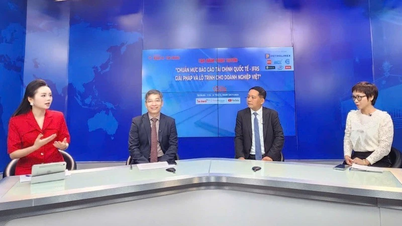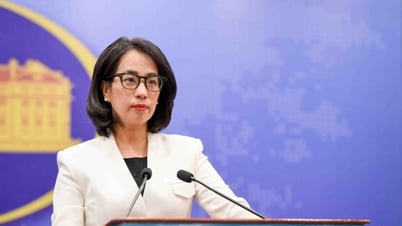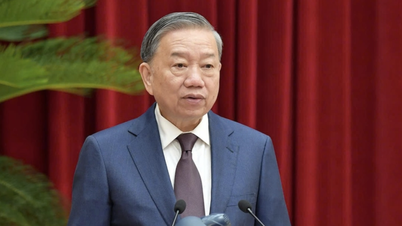The Ministry of Finance will coordinate with ministries and branches to advise the Prime Minister and the Steering Committee for Price Management on solutions to respond to challenges to control inflation and stabilize the macro-economy.

On July 5, to ensure that the increase in basic salary is substantial, the Ministry of Finance informed that it has thoroughly implemented price management work.
From July 1, the basic salary will increase from VND 1,800,000 to VND 2,340,000. The Ministry of Finance emphasized the need to stabilize market prices from now until the end of the year, especially before information about the salary reform policy and thoroughly implementing the Prime Minister's Official Dispatch No. 61/CD-TTg dated June 22, 2024 (on strengthening price management and operation measures to ensure the goal of controlling inflation and stabilizing the macro economy ).
Decree No. 75/2024/ND-CP clearly states that from July 1, 2024, there will be an increase of 15% on pensions, social insurance benefits and monthly allowances.
As the standing agency of the Price Management Steering Committee, the Ministry of Finance said it will coordinate with ministries and branches to advise the Prime Minister and Deputy Prime Minister -Head of the Price Management Steering Committee on solutions and measures to proactively respond to challenges in the coming time, to ensure inflation control according to the target, price stabilization along with macroeconomic stability.
In particular, the Ministry of Finance emphasized focusing on solutions, closely monitoring market price fluctuations, and commodities that still have price fluctuations to advise on appropriate, flexible, and timely price management policies and scenarios, especially for essential goods and services that have a major impact on price levels. In particular, operating monetary policy according to the set targets in coordination with fiscal policy and other policies to contribute to stabilizing the macro economy, controlling inflation, and ensuring major balances of the economy.
In addition, ministries, branches and localities should proactively prepare plans to regulate prices of State-priced goods, carefully assess the impact to make adjustments according to their authority or submit to competent authorities for consideration and decision on the level of adjustment in accordance with developments and market price levels. On the other hand, ministries, branches and localities need to closely monitor the world economic and inflation developments affecting Vietnam to have appropriate response solutions. Specifically, flexibly and effectively use tools and measures to regulate prices according to the provisions of the law on prices. The domestic supply and demand situation needs to be closely updated to have local contingency instructions to ensure the balance of domestic supply and demand, avoiding shortages, hoarding, speculation and unreasonable price increases.
For state-managed goods and public services that are implementing market roadmaps such as electricity, healthcare services, and education services, the Ministry of Finance said it will continue to closely monitor the price plans and roadmaps developed and proposed by ministries to update inflation scenarios as a basis for advising the Government, the Prime Minister, and the Head of the Price Steering Committee on price management and administration to ensure control of average inflation in 2024 according to the National Assembly's target of 4-4.5%.
Regarding petroleum products, the Ministry of Finance continues to closely coordinate with the Ministry of Industry and Trade to manage petroleum prices according to regulations, closely follow world price developments and coordinate to contribute opinions to perfect the petroleum price management mechanism.
In the market, management levels should strengthen the effective implementation and supervision of price declaration, price posting, price information disclosure, and organize inspections and checks of compliance with price laws, promptly detect, correct, and overcome shortcomings and inadequacies, and strictly handle violations.
In addition, the Ministry of Finance emphasized that information, propaganda, transparency and honesty of price information to control expected inflation need to be strengthened, in order to limit false information that causes confusion for consumers and destabilizes the market./.
Source









![[Video] Many universities lower their minimum scores: Be careful with “low scores, high standards”](https://vphoto.vietnam.vn/thumb/1200x675/vietnam/resource/IMAGE/2025/7/25/f91e64a5fa2c4a86a3b57997e5b263fc)













![[Photo] Signing of cooperation between ministries, branches and localities of Vietnam and Senegal](https://vphoto.vietnam.vn/thumb/1200x675/vietnam/resource/IMAGE/2025/7/24/6147c654b0ae4f2793188e982e272651)















































































Comment (0)